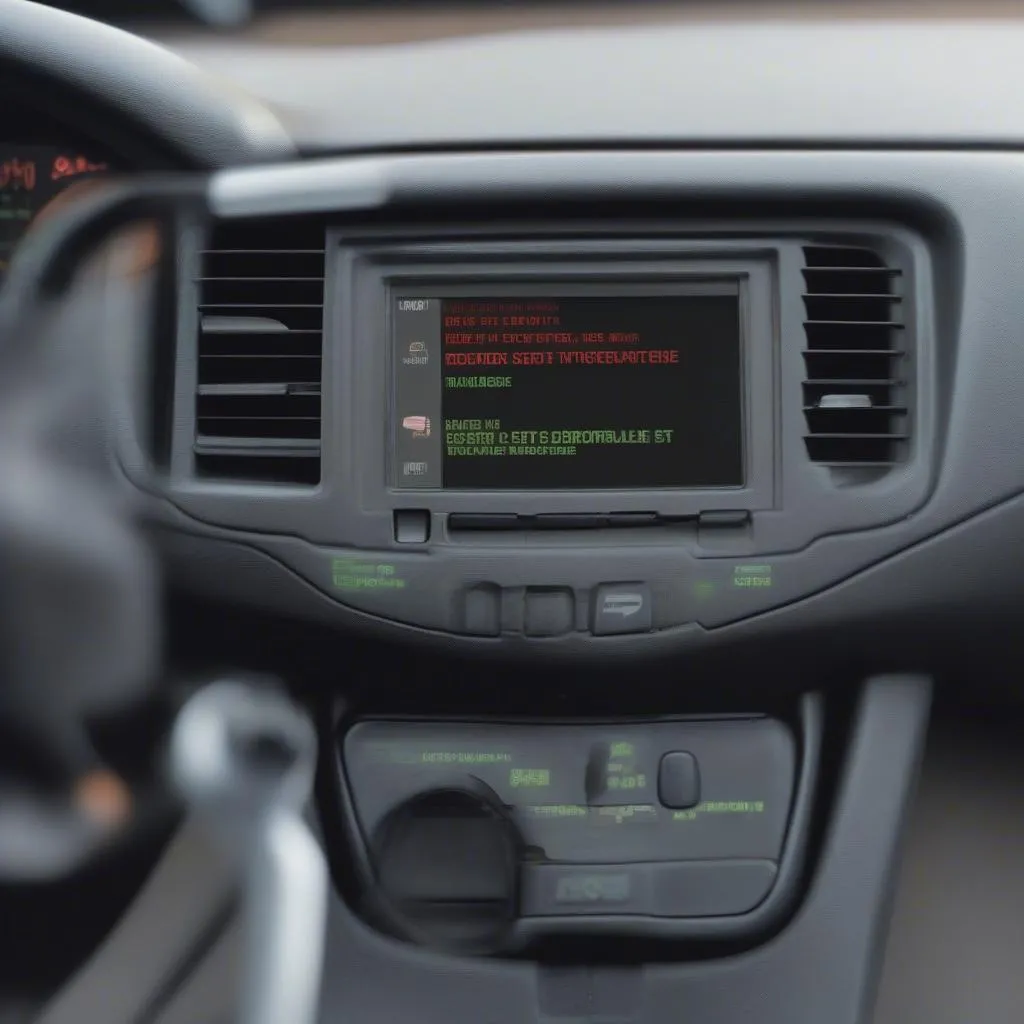Is your car refusing to start? Are the headlights dim or flickering? You might be dealing with a dead battery or a faulty alternator. These two components are vital to your car’s electrical system, and figuring out which one is causing the problem is crucial for getting back on the road. This article provides a comprehensive guide to help you diagnose whether you have a dead battery or alternator issue.
Is it the battery or the alternator? This common question plagues drivers facing car starting problems. Several key indicators can point you in the right direction. A simple test involves jump-starting your car. If the car starts and runs fine after disconnecting the jumper cables, it’s likely a dead battery. However, if the car dies shortly after removing the cables, the alternator is probably the culprit, failing to recharge the battery. is it a dead battery or alternator Knowing these initial signs can save you time and money.
Identifying a Dead Car Battery
A dead battery is often the primary suspect when a car won’t start. Common signs include a clicking sound when turning the key, dim headlights, and interior lights that are significantly weaker than usual. Other symptoms might include a slow engine crank or no crank at all. A simple multimeter test can confirm your suspicions. Connect the multimeter to the battery terminals, and a reading below 12.6 volts usually indicates a low or dead battery.
Recognizing a Faulty Alternator
A failing alternator will exhibit different symptoms. While a car with a bad alternator might initially start, it will eventually die because the alternator isn’t recharging the battery. Look out for dimming headlights while the engine is running, a whining or growling noise coming from the engine compartment, and the battery warning light illuminating on the dashboard. Furthermore, electrical accessories, like the radio or power windows, might start malfunctioning.
Diagnosing a Car Battery Problem or Alternator
Several tests can help you pinpoint the issue. The jump-start test mentioned earlier is a good starting point. is my battery dead or is it the alternator provides a deeper look at this method. Another diagnostic approach involves testing the battery voltage while the engine is running. If the voltage doesn’t increase to around 14 volts, the alternator is likely faulty. Similar to a dud battery, a faulty alternator can cause electrical instability.
Is the Battery Light On? What Does It Mean?
The battery light on your dashboard is a vital warning signal. If it illuminates while driving, it generally indicates a problem with the charging system, usually pointing to a faulty alternator. This means the battery isn’t being charged, and your car could eventually stall. Don’t ignore this warning! Have the charging system checked by a professional as soon as possible. Similar in criticality to a parasitic battery drain test, addressing the battery light warning promptly is essential.
How to Fix a Dead Battery or Alternator
Once you’ve identified the problem, you can take the necessary steps to fix it. A dead battery usually requires a jump-start or a replacement. If you need a new battery, choose one that matches your car’s specifications. A faulty alternator typically requires replacement, a job best left to a qualified mechanic. You could also be dealing with a combination of issues, similar to what’s discussed in car battery problem or alternator.
Conclusion
Distinguishing between a dead battery and a bad alternator is crucial for addressing car starting and electrical issues. By understanding the symptoms and performing simple tests, you can diagnose the problem and take appropriate action to get your car back in working order. Don’t let a dead battery or faulty alternator leave you stranded!
FAQ
-
Can a bad alternator drain a good battery? Yes, a faulty alternator will not recharge the battery, leading to a drained battery.
-
How long does a car battery last? Typically, a car battery lasts between 3 and 5 years.
-
Can I drive with a bad alternator? You can drive for a short while, but the battery will eventually drain, causing the car to stall.
-
How much does it cost to replace a car battery? The cost varies depending on the type of battery but generally ranges from $100 to $300.
-
How much does it cost to replace an alternator? Alternator replacement typically costs between $300 and $700, including labor.
-
What causes an alternator to fail? Common causes include worn-out brushes, damaged diodes, or a failing voltage regulator.
-
Can I test an alternator myself? Yes, you can use a multimeter to test the battery voltage with the engine running.

